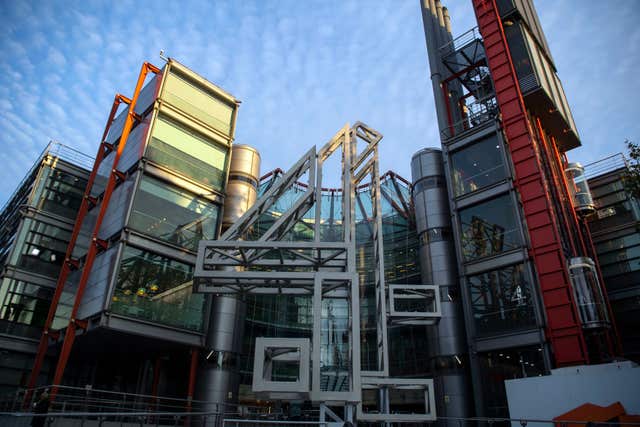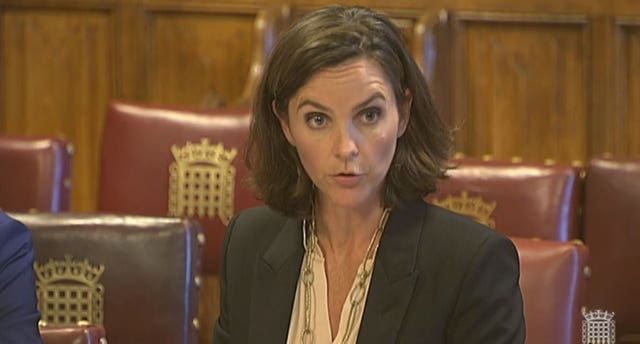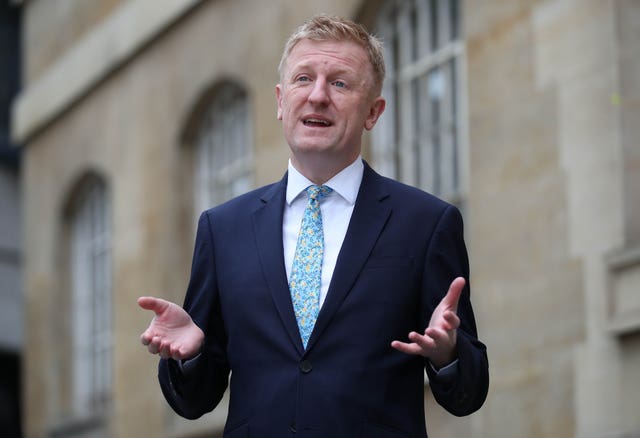
Nick Ferrari 7am - 10am
22 June 2021, 11:44

The broadcaster has published its annual report as it faces the threat of sale.
Channel 4 boss Alex Mahon has warned that the broadcaster could have “different priorities” if it is privatised, and cautioned against doing anything “irreversible” which could “possibly damage some of those things that we do for the sector”.
The possibility of a sale of the Government-owned, privately-funded broadcaster has been explored many times over the decades.
However, it could finally be steered towards privatisation as soon as next year, it has been reported.

Channel 4’s chief executive Ms Mahon and chairman Charles Gurassa, who will appear before MPs later on Tuesday to face questions about possible privatisation of the network, warned of the effect it would have as the broadcaster published its annual report.
The report shows that Channel 4 delivered a record financial surplus of £74 million at the end of 2020, as well as significant digital growth.
Ms Mahon told journalists that the channel is “financially in a really strong position”, and added: “On privatisation, the Government has a right to look at it.
“It hasn’t looked at it for five years, I think, maybe four-and-a-half, and it’s reasonable to look at it from time to time, and a lot has changed in that time.
“But I think, in any examination of it, we’ve got to be clear that it’s about – as the Secretary of State said to the select committee – about making Channel 4 stronger.
“And, you know, my question would be: what’s the analysis to show what makes us stronger?
“We’re here to deliver certain aspects of industrial policy, in terms of how we spend money to help grow the creative sector, in terms of how we speak up for the under-represented, in terms of how we attract young people, in terms of how we are now looking at how we build those creative clusters outside of London.
“So you’ve got to think about how do you make those things stronger and stronger, and then balance that with what the correct or the right or the optimal ownership structure is.

“And I would be saying we’ve always got to be careful of doing anything that might be irreversible, that could possibly damage some of those things that we do for the sector, and that we do for the UK.”
She added: “What I can say is at the moment, we don’t seek to make a profit. So all of that advertising money, all the billions we take back in, that is ploughed back in to the creative sector.
“We don’t make a profit, but the profit is made by many, many small and medium businesses across the UK. And we’re helping them to deliver profits and deliver growth and to flourish. Those are our priorities.
“If we were under a different structure – and I’ve run commercial businesses – you would normally have different priorities.”
Culture Secretary Oliver Dowden previously confirmed that privatisation of Channel 4 was under examination in a review of public service broadcasting.
In addition to questions about privatisation, the Channel 4 bosses will be asked about the broadcaster’s finances and actions taken to mitigate the impact of the coronavirus pandemic on advertising revenues.
They will also be quizzed on the channel’s plans to move its headquarters to Leeds.

Asked what would be at risk if the channel had to make a commercial return, Ms Mahon said: “I think you’ve got to look at what are the big things that we do that are distinctive, that others don’t. So, spreading money outside of London, people, spending with companies, helping skill up individuals, and particularly helping grow small and medium businesses into creative clusters.
“Here (in Leeds) from September, we’ll start the news, as well. So starting to have the news hosted multiple nights a week from outside of London, co-hosted, is a big difference. No other national broadcaster is doing that. So that has been a massive piece of our agenda and I think we want that to continue.
“You might question whether it would under different structures.
“The second piece is the creative economy. We are a publisher, broadcaster, all of our money is spent with British production companies around the UK, and we do not retain the rights, they retain the rights.
“That growth, the export value, and the soft power of having those shows across the world, goes to those production companies and helps grow them.
“We are the only publisher-broadcaster like that. So that’s a very, very distinctive part of our landscape, and you can’t rely on Netflix or Amazon or others to do that, and we are doing that in order to grow their creative economy, we’re not doing that to consolidate or to cross-sell you other stuff.
“Then I think you look at young people… other people can’t attract them. You know, they’re not easy to find, they’re elusive for some, but not for us.
“And in this age of misinformation and disinformation and conspiracy theories, anti-vaxxers and 5G, that’s more important than ever, you know, and I think we need to be very careful not to lose that from the landscape.
“These are really, really important things.
“Then our news – the fact that we have got investigative news and very international news, nobody else was making a documentary about the BBC and (Martin) Bashir, nobody else was making a documentary about Michael Jackson or (Michael) Barrymore body in the pool.
“You know, these are big interventions in the market. And I think we want to make sure anything we look at, which needs proper analysis, we need to make sure the media landscape is strengthened not worsened by any changes to Channel 4.”